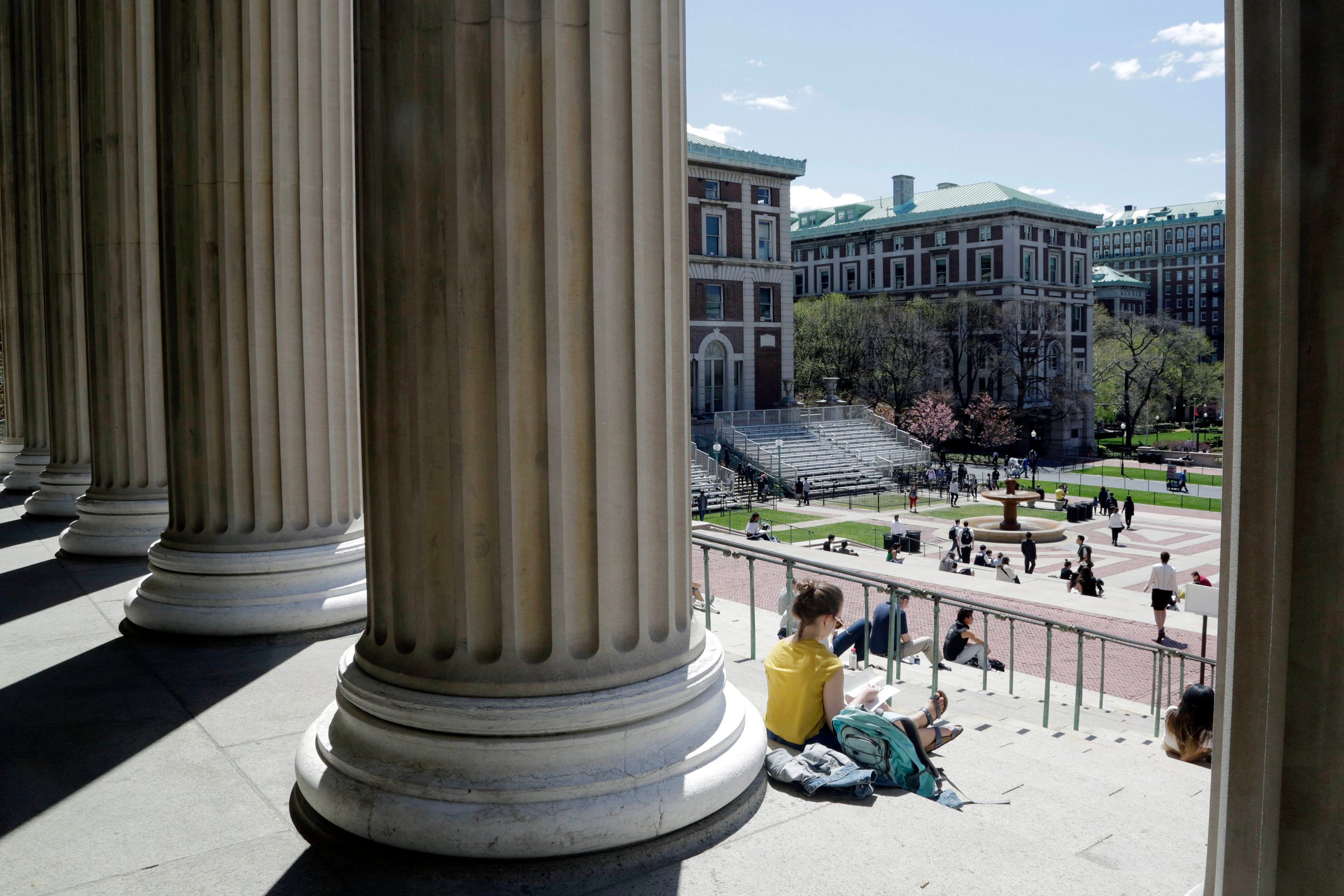
Several college athletic teams have come under fire in recent months for racist remarks or lewd comments that have surfaced in emails or text messages between athletes. All were dealt athletic suspensions by their universities. But some student activists see that response as a perfunctory fix to a deep-rooted problem.
“Time and time again, what’s shown is that these are only superficial measures that don’t get to the real root of structural racism on campus,” said Amber Officer-Narvasa, a junior at Columbia University—where members of the wrestling team were found to have shared lewd, misogynistic or racist text messages, resulting in a temporary suspension. Some members of the wrestling team were cleared to return to competition last month, while others were suspended for the remainder of 2016 or the remainder of the academic year.
“The group text messages that have been brought to light do not meet the standard of behavior we expect from our student-athletes at Columbia,” the university’s athletics department said in a statement, calling the messages “deeply offensive.”
Officer-Narvasa—an organizer with No Red Tape, a campus group that advocates against sexual and domestic violence—participated in protests over the team’s messages and helped organize an open meeting to discuss frustration with the university’s response. “I think that obviously it wasn’t enough. I think the university’s response is still extremely inadequate,” she said.
Columbia defended its response by explaining that even highly offensive speech is not a conduct violation at the university, and the right to freedom of expression protects such speech from more severe punishment, including expulsion or suspension from the school.
Washington University on Friday became the latest example, suspending its men’s soccer team over allegations that the team had made “degrading and sexually explicit comments” about members of the women’s soccer team in an online document.
Princeton University suspended its men’s swimming and diving team last week over a complaint about content on the team’s listserv that was “vulgar and offensive, as well as misogynistic and racist in nature.” Harvard University and Amherst College have also dealt athletic teams similar suspensions in recent months.
“From my point of view, the wrestling team messages—and other things that have surfaced at other schools—are deeply indicative of the unspoken values at these schools,” Officer-Narvasa said.
After a wave of protests over racism swept campuses across the country last year, the recent incidents show universities are still navigating how to respond to racist and sexist incidents.
“I applaud them in terms of their reaction and being quick, but we need to be proactive,” said Lawrence Ross, whose book Blackballed: The Black and White Politics of Race on Americas Campuses, examined racism and activism at universities.
Ross said universities have long maintained a formula of doling out reactive punishments without necessarily tackling systemic issues of racism. In order to solve that problem, he said universities will need to fundamentally change the culture on campus, rather than just avoid the optics of controversy.
“Universities are saying, ‘OK, I’m going to suspend you,” Ross said. “But really the crux of the matter is how do you get a community that is non-hostile to black and brown people and women, in terms of sexual assault?”
More Must-Reads From TIME
- The 100 Most Influential People of 2024
- The Revolution of Yulia Navalnaya
- 6 Compliments That Land Every Time
- What's the Deal With the Bitcoin Halving?
- If You're Dating Right Now , You're Brave: Column
- The AI That Could Heal a Divided Internet
- Fallout Is a Brilliant Model for the Future of Video Game Adaptations
- Want Weekly Recs on What to Watch, Read, and More? Sign Up for Worth Your Time
Write to Katie Reilly at Katie.Reilly@time.com